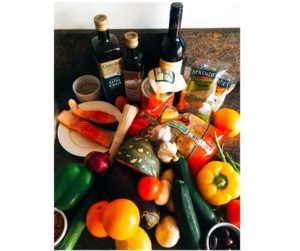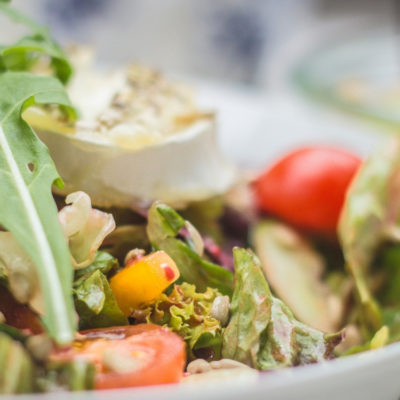This is the first in a series of articles which compares and contrasts the lifestyle and eating patterns of people living in particular regions around the world where studies have found those people live long and healthy lives.
In the past nutrition research has focused mostly on the effects of individual nutrients and sometimes foods, but not usually on dietary patterns. Based on this research it has lead our society to use vitamin, mineral and herbal supplements to fortify sometimes poor eating patterns and lifestyles. While this research is helpful in understanding how various nutrients affect us there are sooo many different nutrients in our foods and drinks we will possibly never know what they all do.
More recently there have been a number of studies examining the relationship between diet and lifestyle and longevity or illness like cancer and heart disease.
So today I want to look at the Mediterranean diet.
Do you enjoy eating vegies, fruit, legumes, wholegrains, yoghurt, fish, olive oil, red wine with the occasional (think monthly) red meat? Well, that’s the basis of the Mediterranean diet.
So, what’s so special about it?
It’s high in plant based foods – and these contain lots of monounsaturated fats, fibre, vitamins, minerals, phyto-nutrients (yes, I realize I’m relating the eating pattern back to nutrients – it helps to explain the benefits):
- It contains enough of protein and the essential minerals like calcium, iron and magnesium – from the yoghurt, fish, and a small amount of cheese and meats. Good for strong bones and growth. If you are trying to manage your weight, choose reduced or low fat dairy products.
- It has plenty of good fats – predominantly monounsaturated fat from olives and olive oil, nuts, seeds, plus marine omega 3s from the fish and seafood, and plant based omega 3s from wholegrains. Brilliant for preventing heart disease, as well as being great for eye and brain health.
- It’s really high in fibre from the fruit, vegetables and legumes. That’s great for your microbiome and gut health.
- And really high in phyto-nutrients found in all plant based foods – all those health giving chemicals often labelled as antioxidants but with many other actions, including carotenoids, flavonoids, resveratrol, glucosinolates, and phytoestrogens. These are thought to protect against a multitude of chronic conditions and cancers.
- And while the eating pattern includes drinking alcohol, it’s usually 1-2 glasses of red wine drunk with meals in a family or social setting.
The Mediterranean diet is not just a way of eating but a way of life. The lifestyle includes daily exercise and a connection to family and the local community as well as spirituality.
The other thing which is important to consider is what is not in this eating pattern and lifestyle. Foods high in sugars like lollies and soft drinks, highly processed snack foods and fatty meats, and smoking are not part of this lifestyle.
Okay, how do I cook for this eating pattern?
Base meals around vegetables and wholegrains. Check out the supermarket for tinned tomatoes,  passata and frozen vegetables if you don’t have space to store all your vegie needs fresh.
passata and frozen vegetables if you don’t have space to store all your vegie needs fresh.
When you add oil, use extra virgin olive oil. Swap margarine and butter for dipping oil.
Use herbs for seasoning – fresh is best but dried with no added salt is also good.
Replace much of your meat with legumes – peas, beans and lentils – try swapping brown lentils for mince, white beans for chicken, red kidney beans for beef in mixed dishes and salads. If you don’t have time to cook legumes from dried beans choose the tinned variety and rinse off the liquid.
Add nuts and seeds to meals.
Swap refined grains for wholegrains.
Snack on fruit, nuts, vegies (who doesn’t love to chew on carrots!).
So, to sum up
- Base meals and snacks on vegetables, legumes and fruit.
- Choose wholegrains over refined grains.
- Include dairy products like yoghurt and cheese.
- Eat fish, seafood and eggs while going easy on chicken and particularly red meat.
- Drink red wine in moderation.
- Only rarely eat sugary foods like lollies and drinks like soft drinks.
- Be active everyday.
- Take part in your local community.
A presto! (I’ll talk to you soon!)
get dale’s support now register for weekly tips






Comments (1)